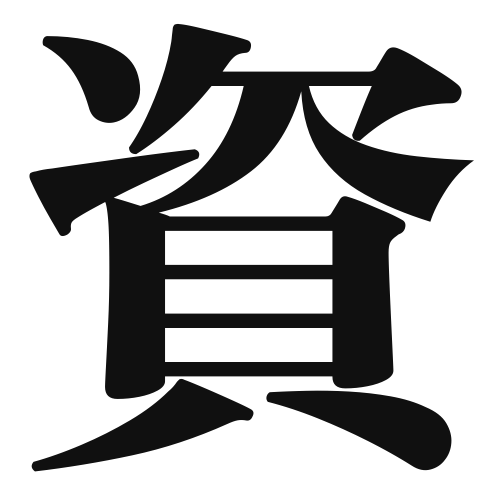1. Overview of Meaning
The kanji “資” (pronounced “shi” or “su”) primarily means “resources” or “capital.” It refers to the assets or materials that can be used to generate wealth or support various activities.
2. Formation and Radical
The kanji “資” is a compound character (会意文字) that combines elements to convey its meaning. It consists of the radical “貝” (shell, which often relates to money or valuables) and the character “自” (self). This combination suggests the idea of self-sustaining resources.
The radical “貝” is commonly associated with wealth and valuables in many kanji characters.
3. Examples of Usage
Common words and phrases that include “資” are:
- 資本 (shihon) – capital
- 資源 (shigen) – resources
- 資産 (shisan) – assets
Example sentence in daily conversation:
「私たちは新しいプロジェクトのために資金を集めています。」
(Watashitachi wa atarashii purojekuto no tame ni shikin o atsumeteimasu.)
This translates to: “We are raising funds for a new project.”
4. Synonyms and Antonyms
Similar kanji with related meanings include:
- 財 (zai) – wealth, which emphasizes the concept of money or property.
- 供 (kyou) – to provide, which focuses more on the act of supplying resources.
Antonyms include:
- 無 (mu) – nothing, which indicates the absence of resources or wealth.
5. Cultural and Historical Background
The kanji “資” has significant relevance in Japanese culture, particularly in the context of business and economics. It is often used in discussions about financial planning and resource management.
Proverbs and idiomatic expressions that include “資” might not be as common, but the concept of managing resources wisely is a recurring theme in Japanese culture, reflecting the importance of sustainability and careful planning.
